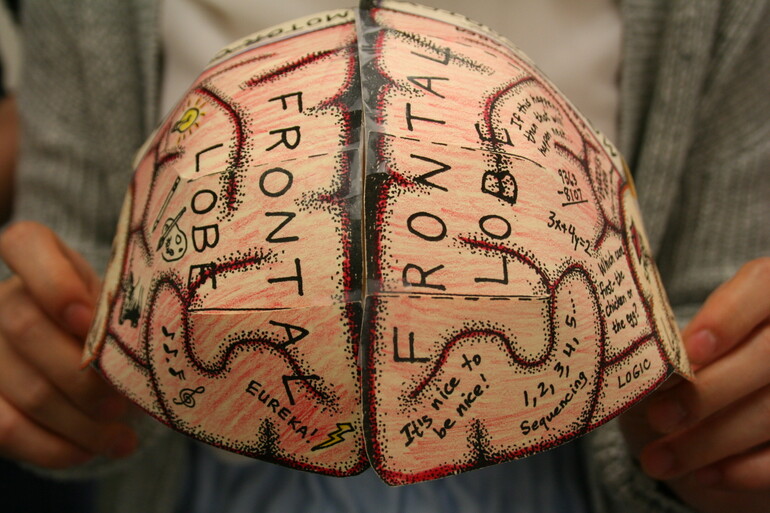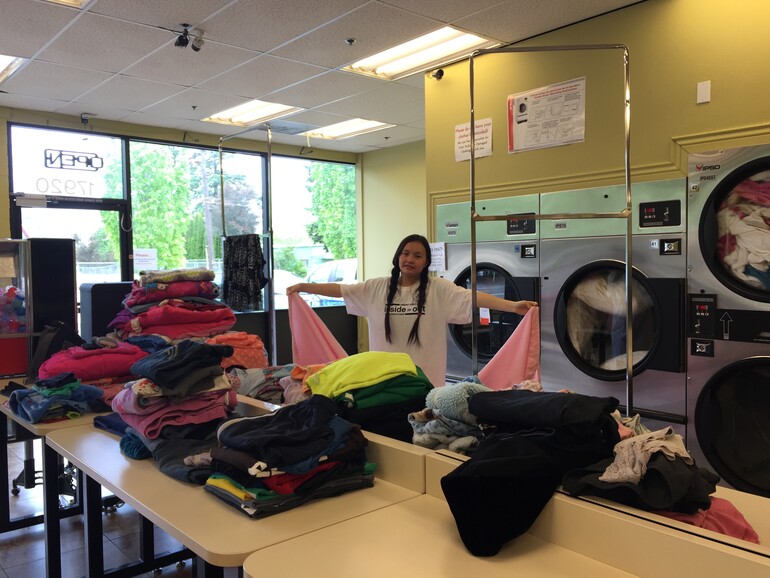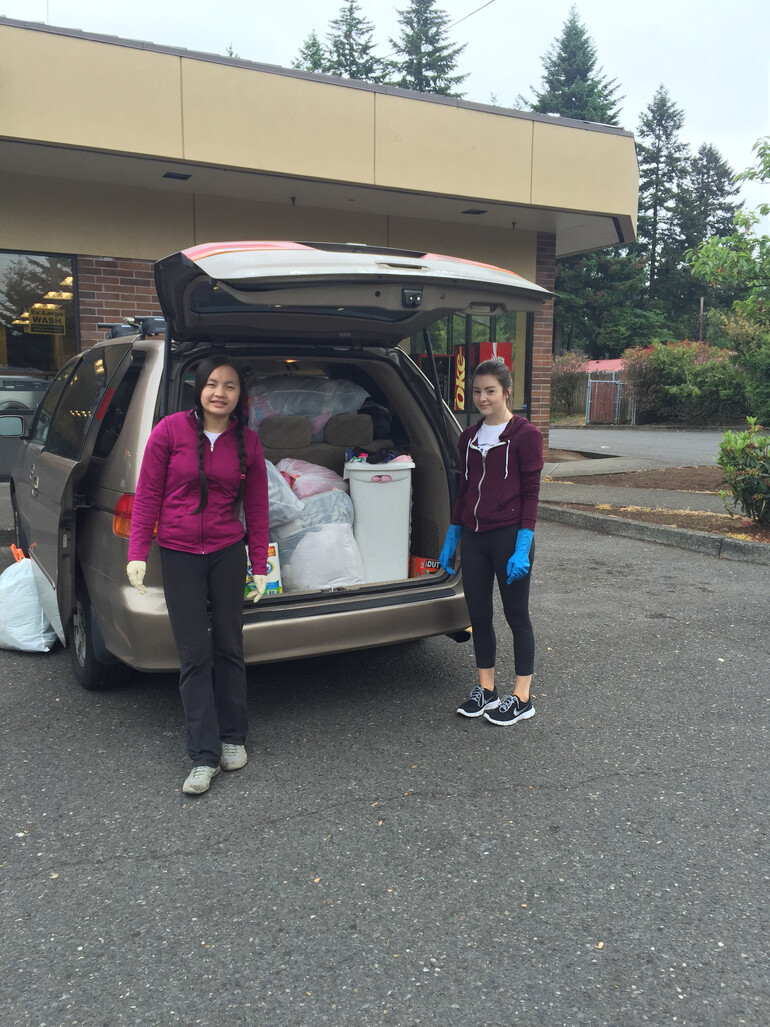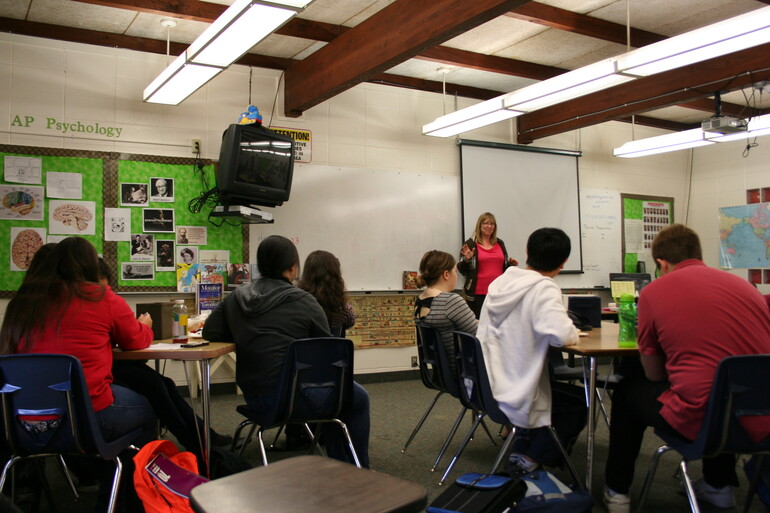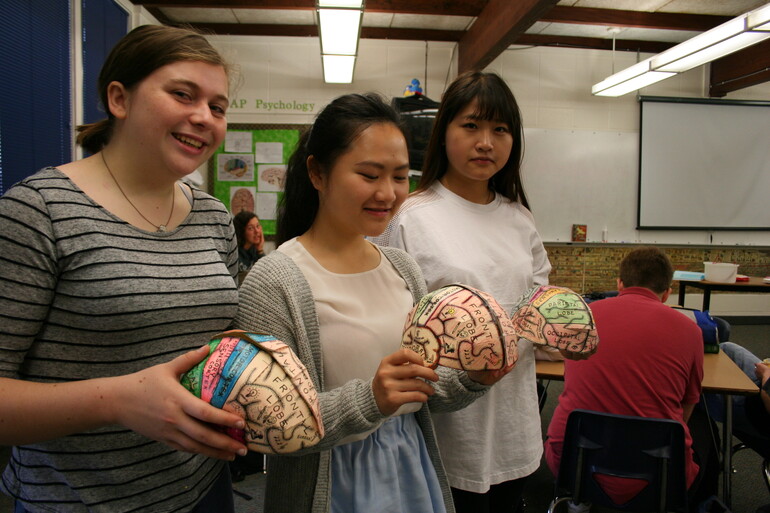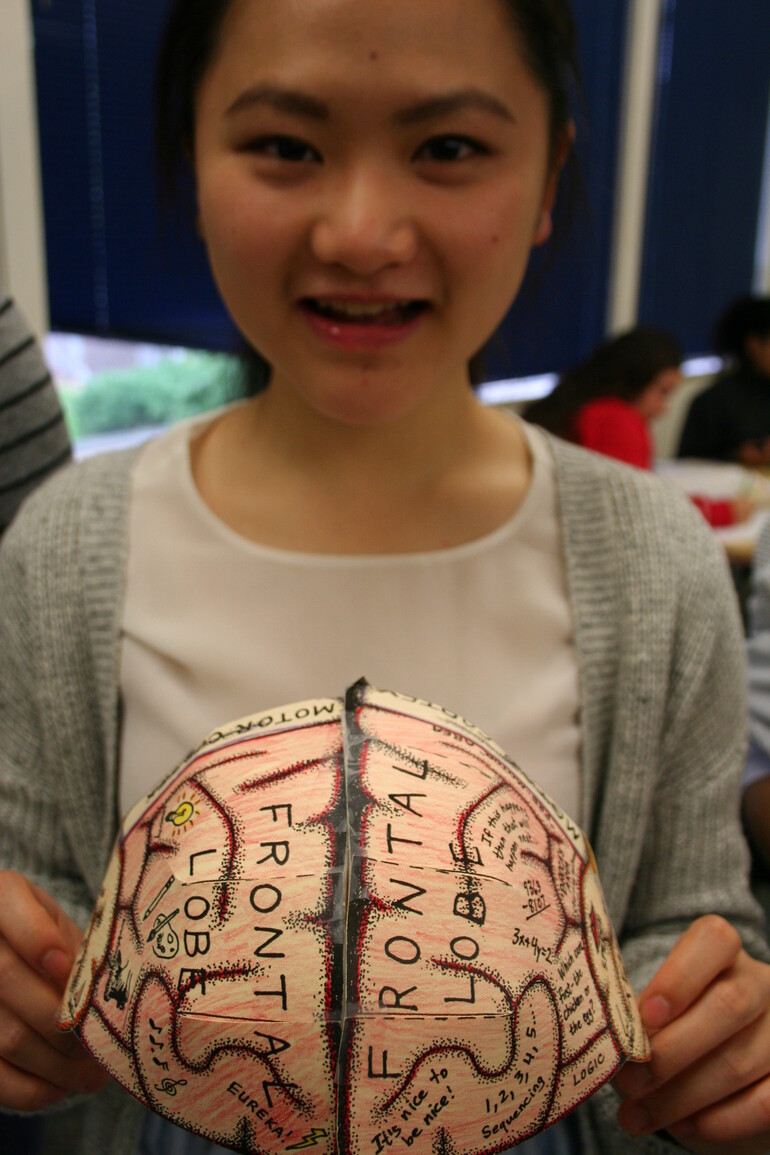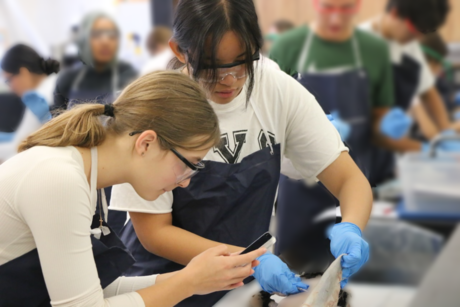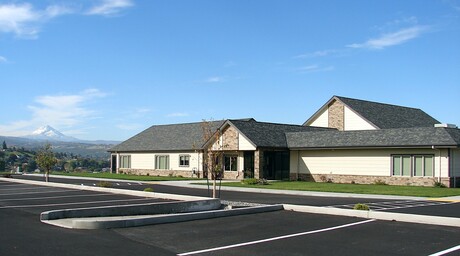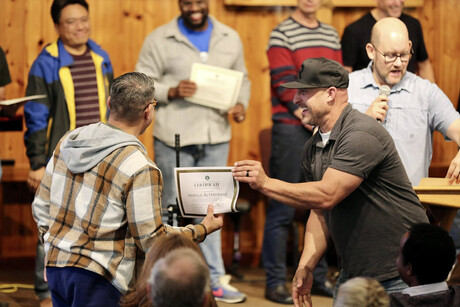“We’re going to be helping a family tomorrow,” Mechelle Peinado told her Portland Adventist Academy (PAA) advanced placement (AP) psychology students. “But I want to prepare you. This will be hard.”
Peinado, PAA school guidance counselor and teacher, believes in teaching beyond the textbook. That’s why, for PAA’s all-school Service Day, she was compelled to ask her psychology students to help a family living in poverty and struggling with a hoarding disorder.
“We all have ‘stuff,’” continued Peinado. “But some of us have ‘stuff’ that’s easy to hide. This family is letting us into their lives, and it’s very vulnerable for them.” She continued to teach about family systems, cycles of poverty and how exciting it is that mental health care offers hope.
While compassion and empathy are important to the field of psychology, students planning on careers in counseling, social work or psychiatry must approach the rigorous courses with discipline.
Principal Dan Nicola added AP psychology to PAA’s class offerings with that in mind. “The College Board has conducted studies,” says Nicola, “that show AP classes increase the overall academic performance of students taking an AP class. The discipline they must develop to be successful in a college-level course tends to be applied to all the other classes they are taking at the time.”
AP psychology students were successful. “Over the school year, they have grown in their writing skills, study habits and critical thinking skills,” says Peinado. “They have come to own their own learning and knowledge.”
Taking the course one step further, AP psychology students were witnesses on Service Day to the devastation that mental health disorders cause. Junior Grace Koolhoven says the Service Day project opened her eyes. “It became real,” she explains. “Instead of just reading and studying about mental illness, we were there in the situation.”
“Even though we talked about what to expect,” says Peinado, “shock set in as we opened the door. The smell was intense, and the sights were overwhelming.”
“We had two goals,” she adds. “The grandmother wanted a path so she could use her wheelchair, and, most importantly, she wanted clean floors for the baby to crawl on.”
Even with a group of 20 students, staff and parents working most of the day to haul old furniture, wash clothes, and find surfaces and floors to scrub, the project was too big to complete. But no one left discouraged.
“The patient was so grateful,” says Sharon Crosby, the Adventist Home Health social worker who arranged the project with PAA. “She kept burying her face in the clean laundry because she couldn’t believe how good it smelled.”
“Patients like this can feel isolated, stuck and lonely,” adds Crosby. “But after the students were gone, she told me that it had been a long time since she’d seen people that were this compassionate and caring.”
“It was a vulnerable experience for this family,” says Peinado. “But our students did a great job of controlling their reactions, befriending the young girl and interacting with the family in encouraging ways.”
Nicola says, “Students who take the opportunity to learn about psychology in an environment in which Christian principles can also be applied are at an advantage. They are developing better tools for understanding, relating to and responding to the most challenging situations we face in life.”
“I know a few of these students want to go into ‘helping professions’ like social work,” says Crosby. “The great thing about these careers is that you get personal one-on-one work being the hands and feet of Jesus."
" Jesus isn’t here on Earth,” she concludes. “But we are. And in those professions, that’s what we get to do.”





